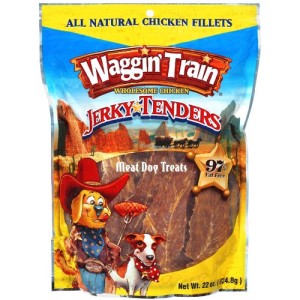 As of September 30, 2014, the FDA has received approximately 5,000 complaints of illness associated with consumption of chicken, duck, or sweet potato jerky treats, most of which involve products imported from China. The reports involve more than 5800 dogs, 25 cats, three people, and include more than 1,000 canine deaths.
As of September 30, 2014, the FDA has received approximately 5,000 complaints of illness associated with consumption of chicken, duck, or sweet potato jerky treats, most of which involve products imported from China. The reports involve more than 5800 dogs, 25 cats, three people, and include more than 1,000 canine deaths.
These numbers include approximately 270 complaints received since the FDA’s last update in May 2014. This is a significant decrease from the previous period (October 2013 to May 2014), in which the FDA had received 1,800 complaints.
Because of the sharp reduction in complaints, the FDA is tentatively planning to shift from a biannual routine reporting cycle to issuing annual updates. This shift in reporting cycles does not mean that the FDA is reducing its effort to investigate the cause of these illnesses: the agency continues to devote significant resources to its investigation, and will post non-routine updates if notable events occur.
Although it is impossible to determine in every case whether the events reported were in fact caused by eating jerky pet treats, the FDA continues to believe that there is an association between some of the reports and consumption of jerky pet treats.
The agency continues to caution pet owners that jerky pet treats are not required for a balanced diet, and encourage them to consult with their veterinarians, both prior to feeding treats and if they notice symptoms in their pets.



.jpg) inspections at four jerky treat manufacturing sites in Liaocheng and Jinan, China, according to the records.
inspections at four jerky treat manufacturing sites in Liaocheng and Jinan, China, according to the records.